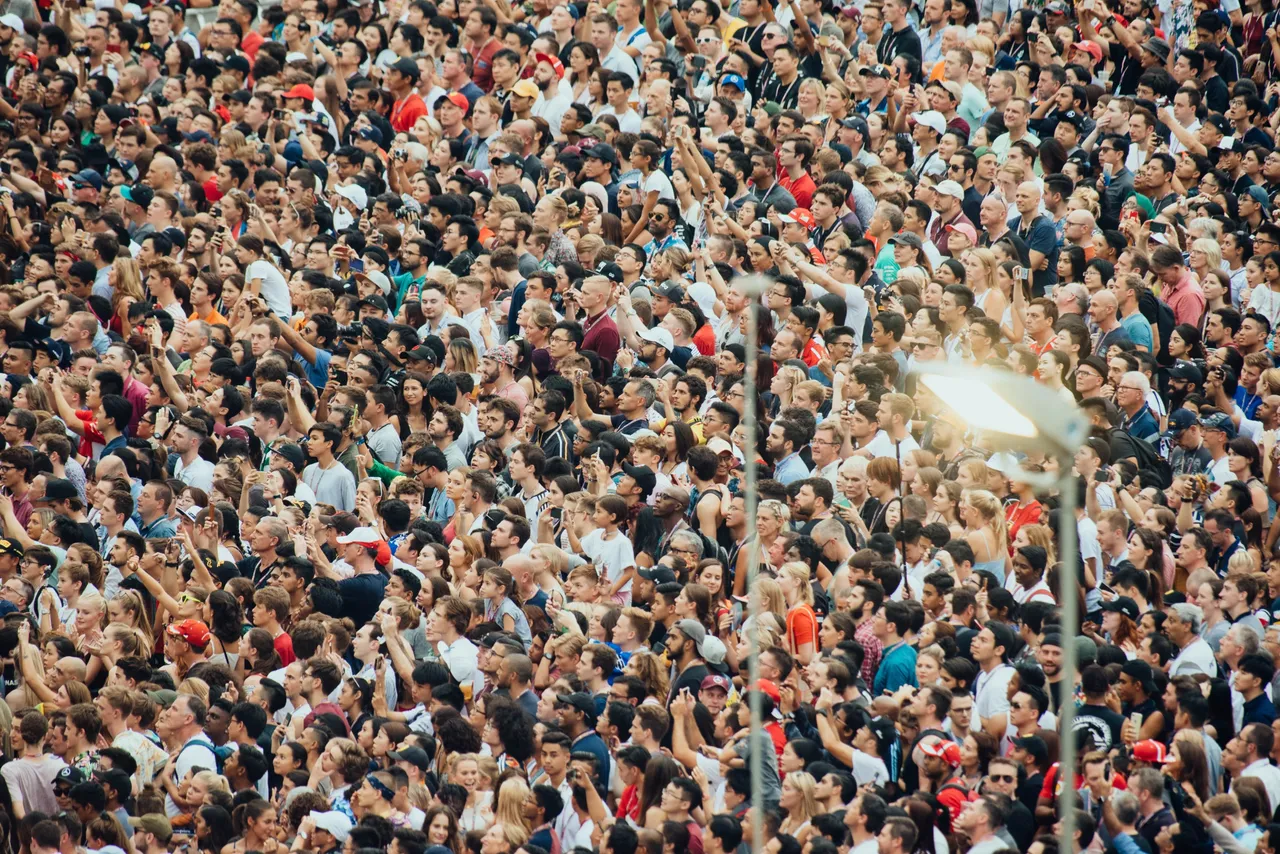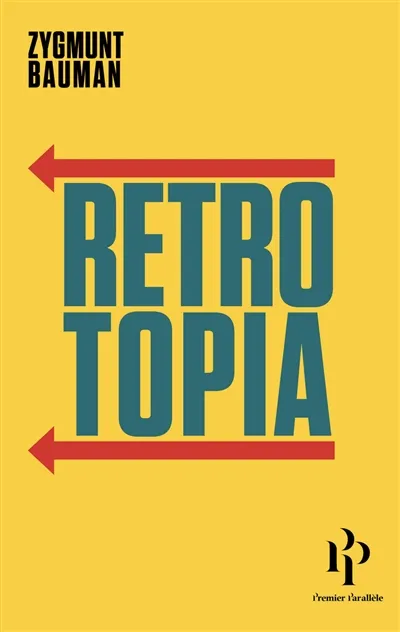
If I could paint a portrait of the planet on which I now live, and on which my son and daughter were born, it would look something like this:
In a vast and majestic landscape, you see a large crowd of people. Fat, thin, tall, short, gray, brown, blond, often a bit older. Their connection with each other has to do with the direction they are looking at. Instead of turning their eyes to the distant horizon - that which lies on the other side of the proverbial mountains - they stand with their backs to it. They look straight into the eyes of the viewer of the painting. In the bottom of the canvas, in the direction the crowd is looking at, you see a warm, light glow. A glow that acts as a magnet and thus irresistible to the crowd. This is in stark contrast to the horizon from which one has turned away. The horizon is dark and quite grim, as if it hints at an omen of an impending doom.
If I had to name the painting, it would be 'Planet Retrotopia'. The place where people have exchanged the future for the imperfect past. Three things are considered very important in Retrotopia: security, comfortability, and a sense of belonging.
The term comes from the Polish sociologist Zygmunt Bauman. Just before his death, in 2017, his book Retrotopia was published - in view of the European rise of right-wing conservative forces. On the cover it says:
While we have lost our faith in utopias of all hues, the human aspiration that made this vision so compelling has not died. Instead it is re-emerging today as a vision focused not on the future but on the past, not on a future-to-be-created but on an abandoned and undead past that we could call retrotopia.
With the interesting addition:
True to the utopian spirit, retrotopia derives its stimulus from the urge to rectify the failings of the present human condition though now by resurrecting the failed and forgotten potentials of the past. Imagined aspects of the past, genuine or putative, serve as the main landmarks today in drawing the road-map to a better world. Having lost all faith in the idea of building an alternative society of the future, many turn instead to the grand ideas of the past, buried but not yet dead.

If you look at contemporary politics, you have to conclude that Bauman's analysis makes sense. Politicians nowadays eagerly use images and signal words that point to the past. "Taking back control", "Make America great again", "Let's act normal again", slogans that conceal a reverse utopian impulse. It is a strategy whose leitmotiv is that what was "dead, something that was gone forever, can blossom again." It doesn't get any more retrotopian.
Now there is no reason to be surprised about our yearning for the past. Nostalgia, we know, is a good compensation strategy in times of great change and challenges. These are times when people cling extra tightly to the past. As a tick that bites into a skin that will eventually fall off.
But once nostalgia becomes absolute, politicians exploit it and the past begins to act as a kind of collective consolation, you end up in a regressive culture. A culture that lives with its back to the future. And that, given the challenges we face, is a recipe for misery.
At a time when there would no longer be big stories, where the left-progressive forces in politics are unable to find the grand and compelling imagination, the utopian energy has not disappeared but has become 180 degrees different and right-reactionary. Welcome to Retrotopia.

- First photo by chuttersnap on Unsplash
- Retrotopia by Zygmunt Bauman
- about Zygmunt Bauman:
Zygmunt Bauman was a world-renowned Polish sociologist and philosopher, and Emeritus Professor of Sociology at the University of Leeds. He was one of the world's most eminent social theorists, writing on issues as diverse as modernity and the Holocaust, postmodern consumerism and liquid modernity and one of the creators of the concept of “postmodernism”. - GoodReads